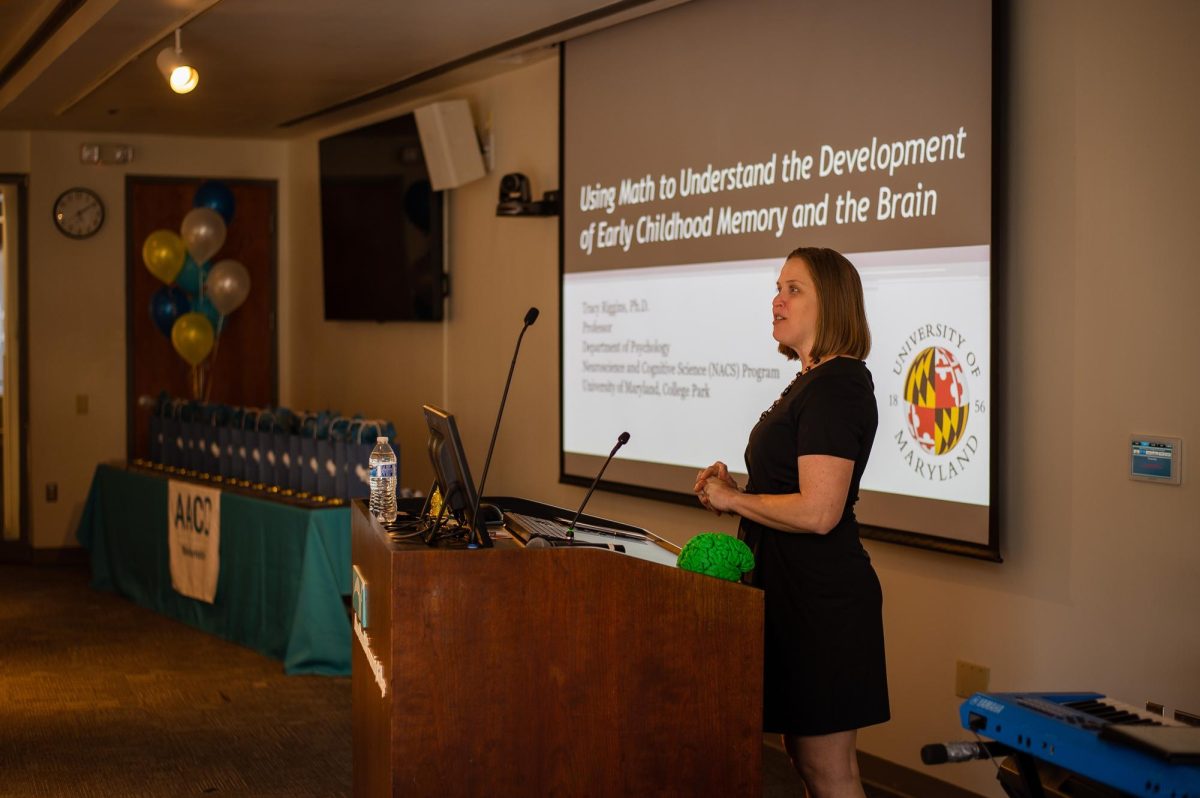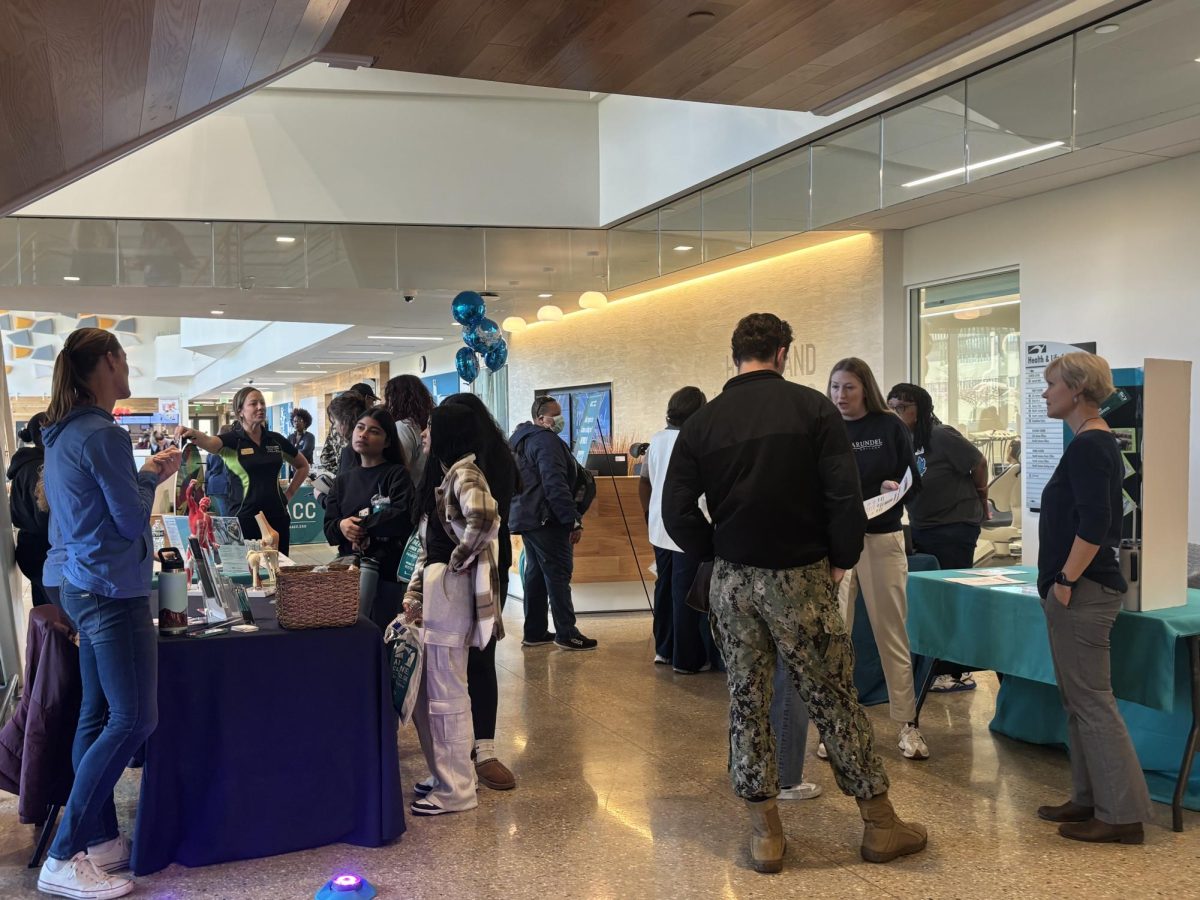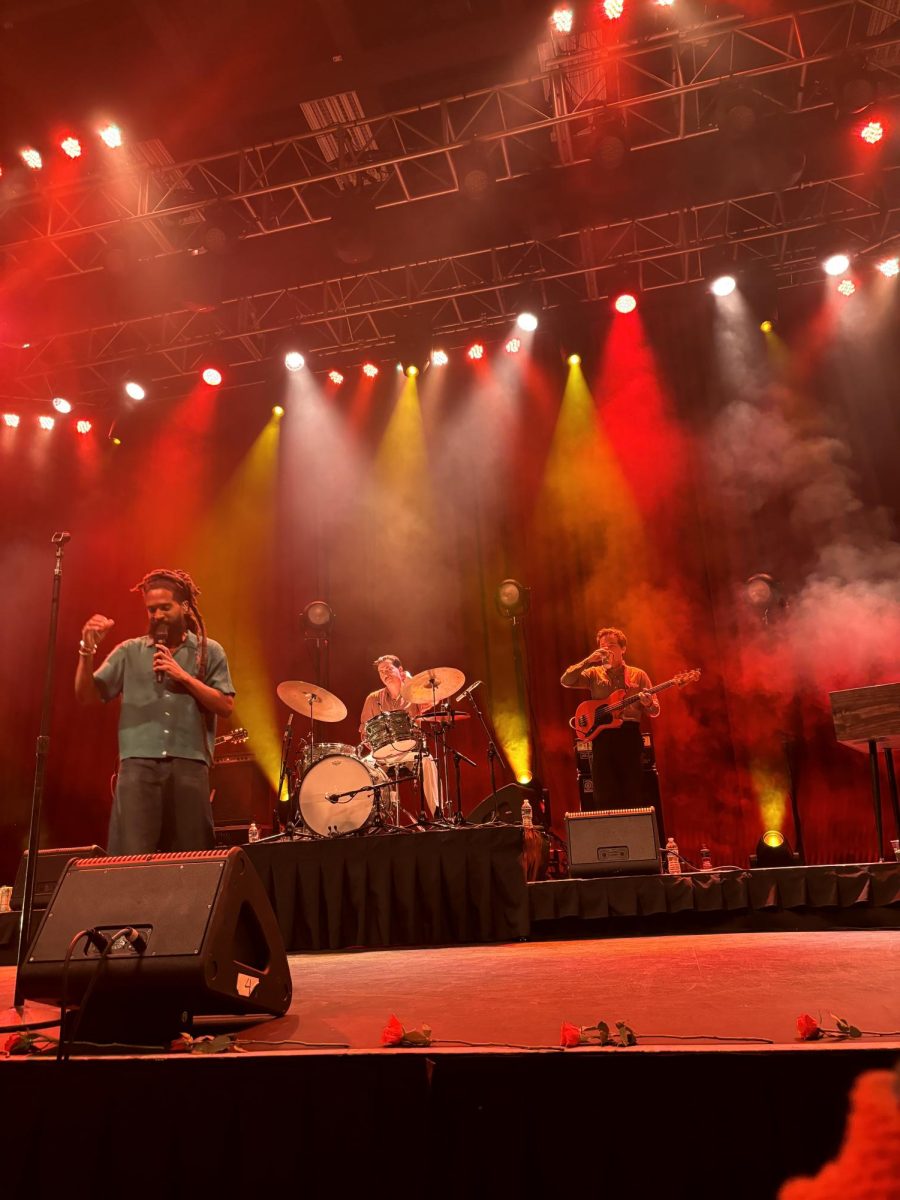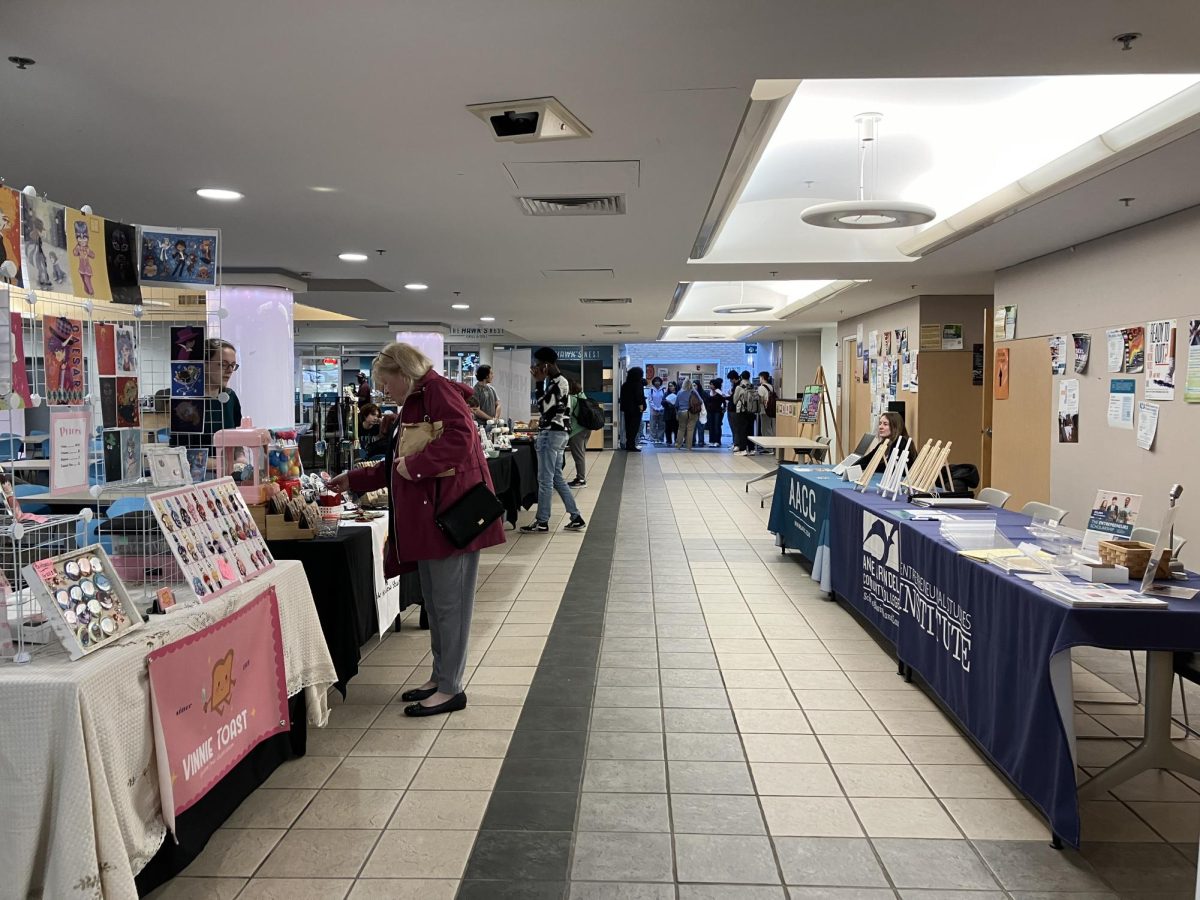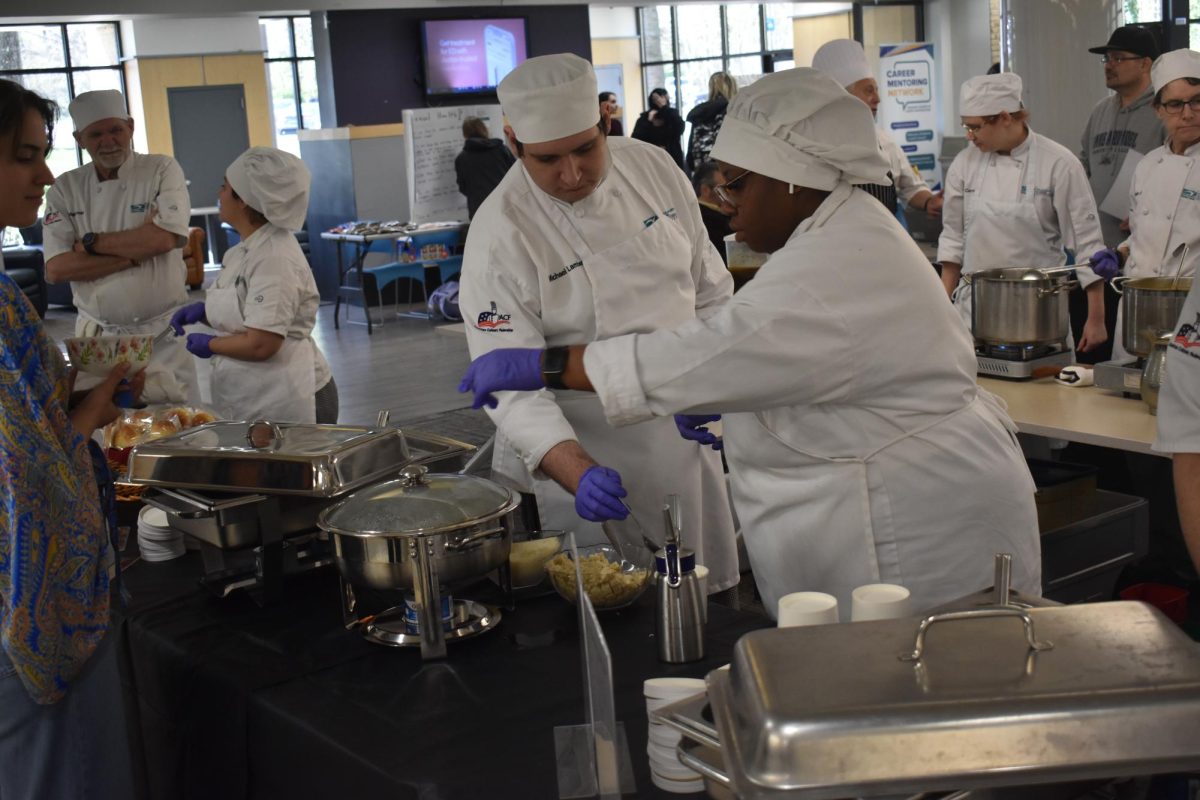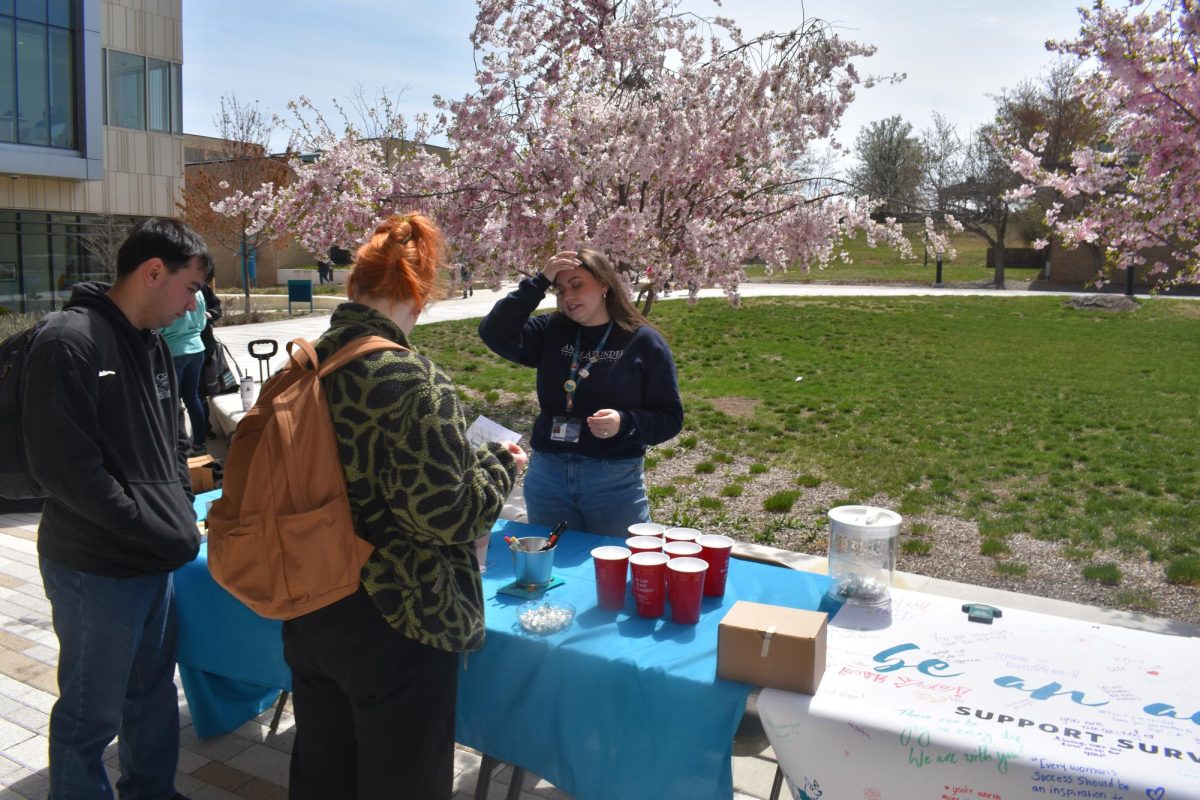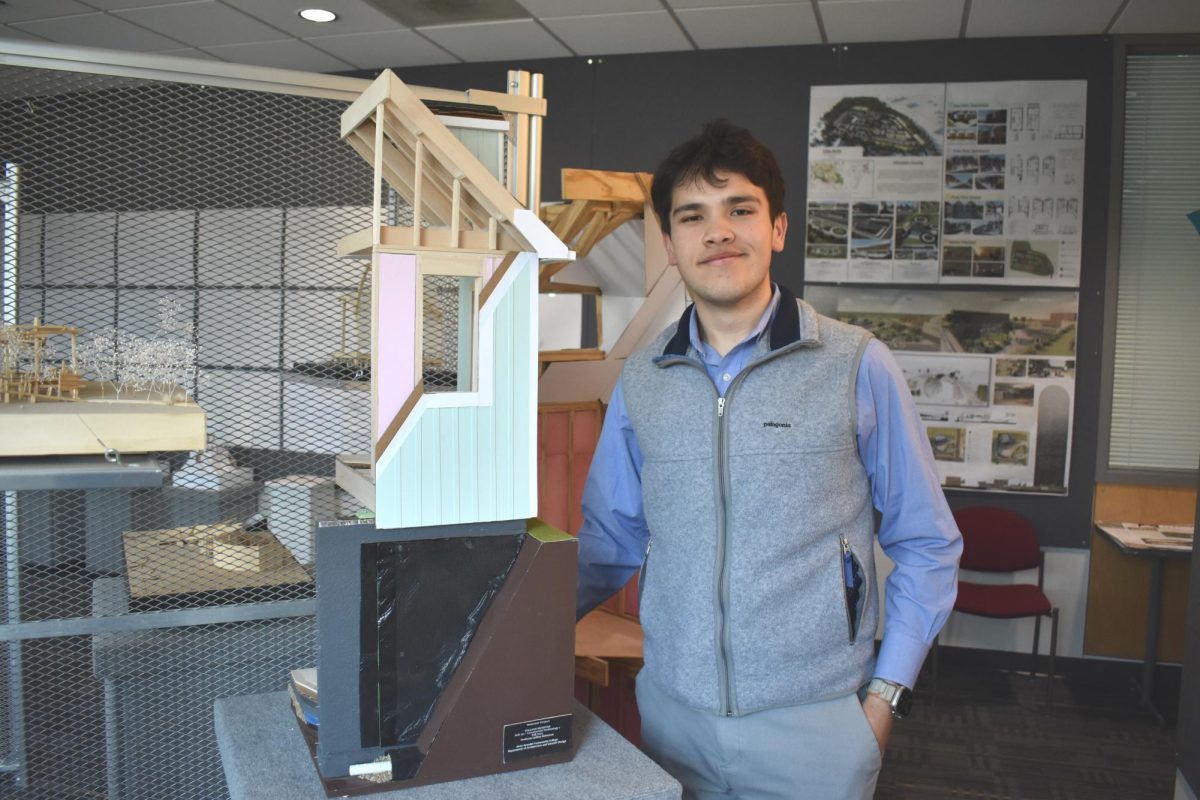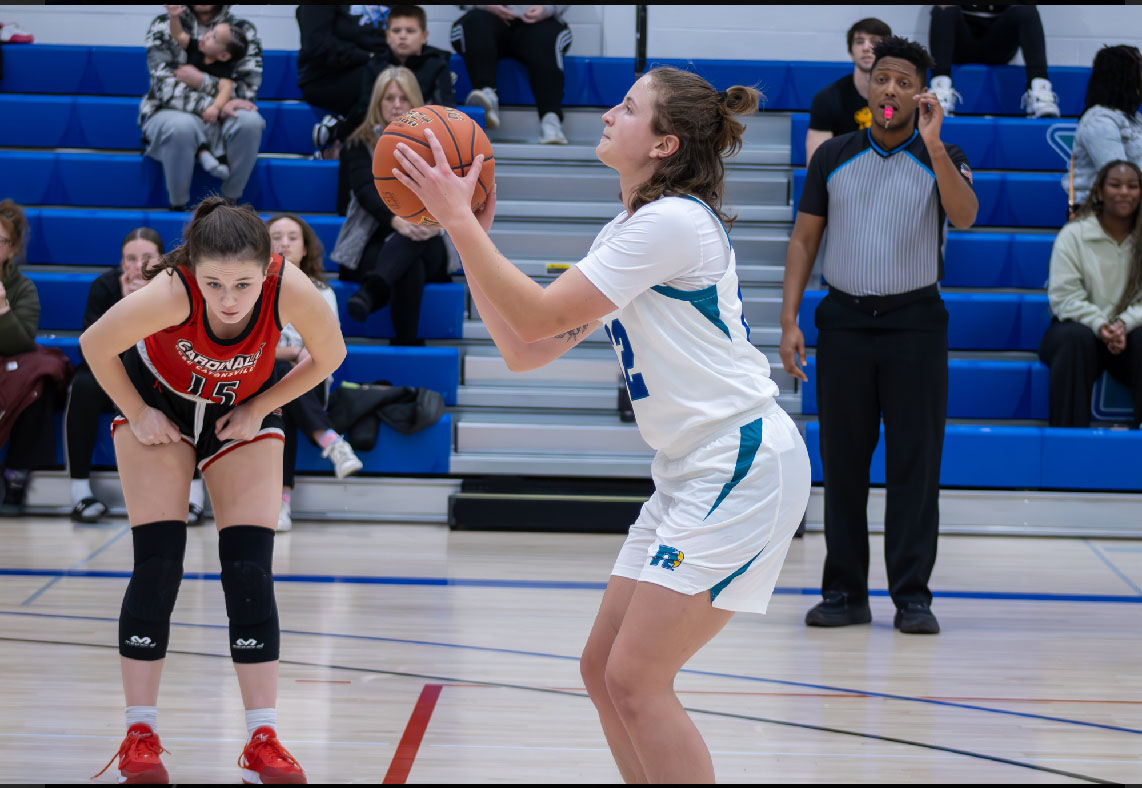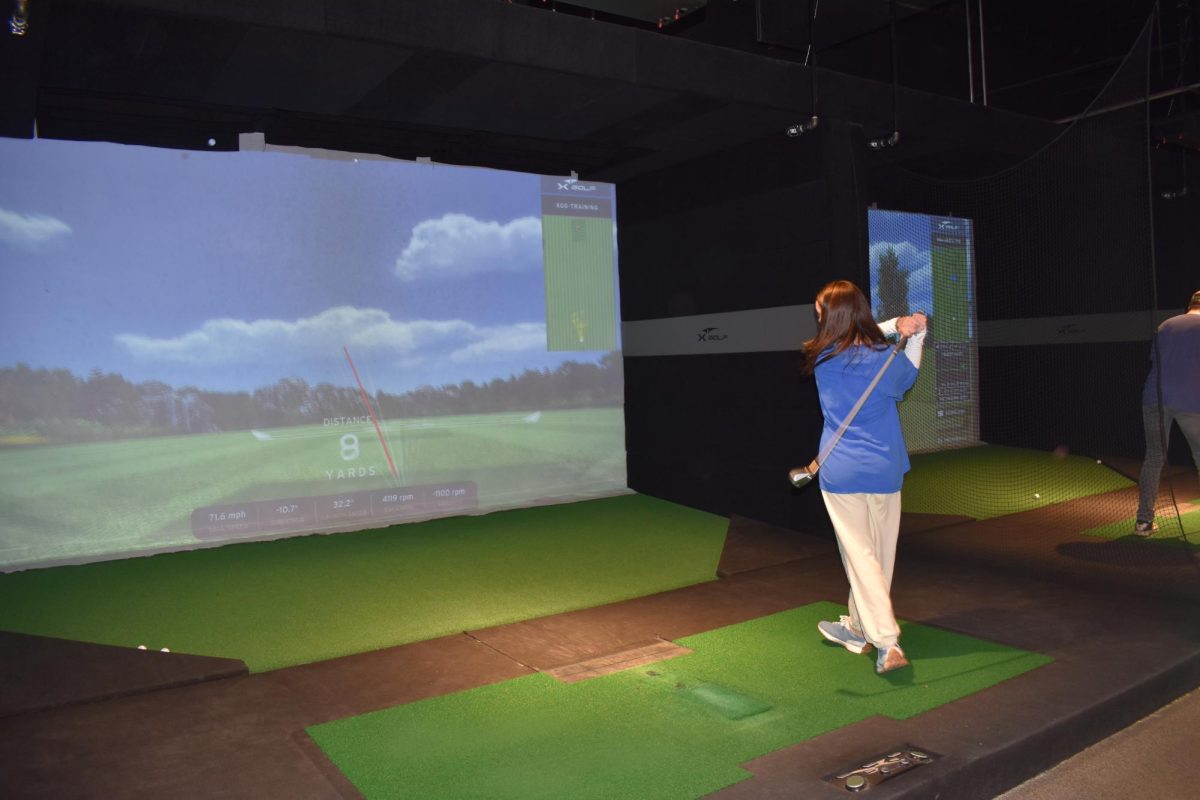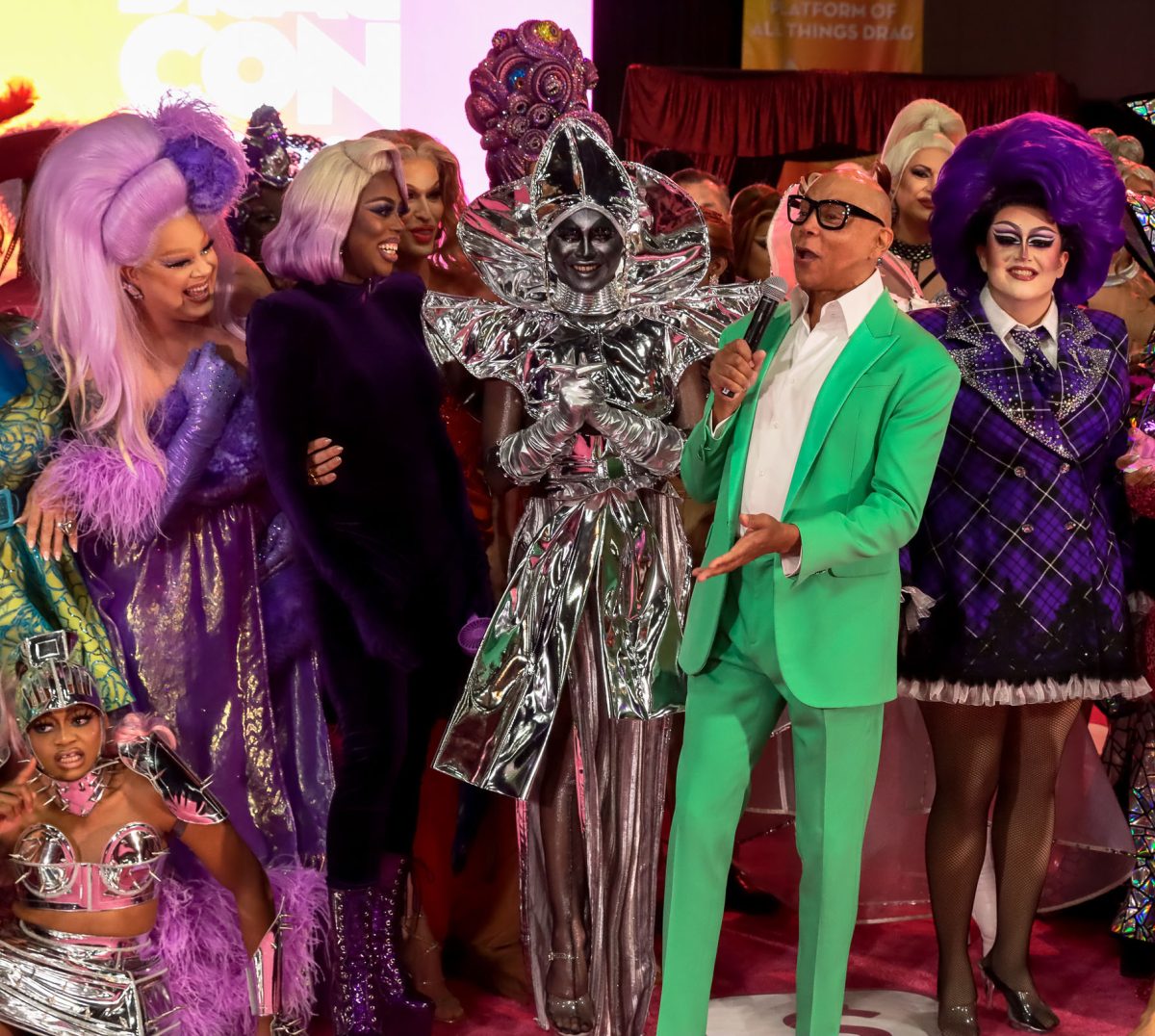Students won math awards and learned about the importance of mathematics at an event on Tuesday.
The Mathematics Department hosted the 2024 Math Awareness Program and Math Awards Ceremony to spread awareness of the importance of mathematics and give awards to students and staff who had major achievements in math. Psychology professor Tracy Riggins came to AACC to speak about neuroscience and how math is used to study the development of the hippocampus in children.
“[Math] is not just textbook stuff. It’s not just algebra [and] it’s not just calculus,” Art Cimiluca, the assistant dean of the Mathematics Department, said. “It’s actually really used for … real world applications.”
The Mathematics Department awarded six AACC students, six Anne Arundel County Public School students, one AACPS teacher and one AACC math tutor twelve different awards for their accomplishments in math.
Riggins said math professor Lindsay Roark invited her to speak about mathematics in neuroscience at the event.
“At first, I said ‘I don’t do math,’” Riggins said. “[But] she convinced me that I would have something to say.”
Riggins added, “I almost didn’t realize, you know, how much we were using math … a fish doesn’t realize it’s swimming in water, right? Because it’s all around them. … I think math is kind of all around us.”
According to Cimiluca, this is the seventh time that the event has been held. Bryant Pepe, the president of the Super Science Club won the STEM Superstar Award for the second time this year.
“I didn’t expect to win it again at all,” Pepe said. “It feels lovely.”
Lucy Feliz, a second-year dual-enrolled computer science and math student, who also won the STEM Superstar Award, said math comes “naturally” to her.
“I don’t want to sound, like, kind of pretentious … [but Math has] always been my thing,” Feliz said. “I leaned into what I was strong in, which is math, and I really enjoy it.”
Henry Tolman, winner of the Outstanding Math Lab Tutor and Student Success Coach award, said he didn’t know he was winning an award until he showed up at the event.
“It was a big surprise. My mom, I guess, decided she wanted to make sure that all the hard work was recognized,” Tolman, a math teacher at Meade Senior High School, said. “So I really appreciate her.”
Similarly, second-year computer science student Scott Smith said he was “pretty shocked” to learn that he won the Math Perseverance Award, initially not knowing what he won when he came.
“I’ve had a lot of mental health issues in my life and it’s been hard to [attend] school because of that,” Smith said. “It kind of means a lot to me.”
Smith added, “It sounds corny, but don’t give up. I … think it’s really important to … just keep pushing through. Stay with your friends, have support systems, keep doing what you’re doing … have faith in yourself.”
Second-year math student Ev Hansen, who won the Math Major Award, said it was “a rough journey” to reach this point.
“I got a late ADHD diagnosis, followed by the pandemic [which] really messed up both my schedule as well as, like, my course trajectory,” Hansen said. “Coming back on track and getting good grades and being recognized for the effort that I put in was really meaningful to me.”
Hansen added, “I failed a lot … the main thing is to keep trying even if it gets frustrating [and] also to find people who can help you.”
Fourth-year communications student Dulcie Metro, who won the Developmental Superstar Award, said she discovered her love for math last fall in her Statistics class with Lindsay Roark last fall.
“I didn’t realize how much I liked math until I took statistics with Professor Roark,” Metro said. “I was passionate about it. I mean, I was doing my math homework to avoid other homework because I loved it so much.”
Metro added, “Even though I’m a communications [student], it’s comforting to know that I am good at something else.”
Minerva Stephensbiley, a first-year economics and environmental science student, said the event was “a lot more lecturing” than she thought but it was a “cool” event.
“Not a lot of people … [in] our age bracket at community colleges get that recognition,” Stephensbiley said. “I think it’s, like, a good way … [for] a lot of people that I know of [to] get recognized for, like, science and math.”
Stephensbiley added, “The food was very good, the music was good … it was interesting and entertaining.”



